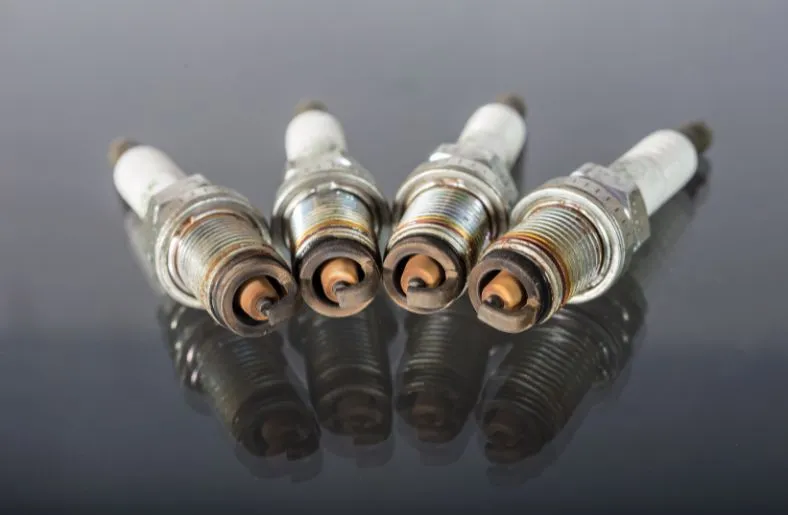Spark plugs are a vital component of any internal combustion engine, and their proper maintenance plays a significant role in the engine’s performance and longevity. One common question that arises when it comes to spark plug maintenance is whether “Do Bosch spark plugs need anti-seize” compound during installation.
In this blog, we will explore the world of spark plugs, discuss the role of anti-seize compounds, and provide insights into whether Bosch spark plugs need anti-seize for optimal performance.
Table of Contents
The Spark Plug’s Role
A spark plug is responsible for igniting the air-fuel mixture within the engine’s cylinders. This controlled ignition is essential for the combustion process that powers your vehicle. Without functioning spark plugs, your engine wouldn’t run, or it would run very poorly.
Proper maintenance of spark plugs is vital to ensure they continue to perform their ignition duties efficiently. Regular maintenance can also extend the lifespan of your spark plugs, saving you money on replacements.
The Role of Anti-Seize Compound
Anti-seize compound is a lubricating substance that is applied to the threads of various components to prevent them from seizing or bonding over time. It is often used on threaded fasteners, such as bolts and nuts, to make disassembly easier and prevent corrosion. When it comes to spark plugs, the use of anti-seize compounds is a subject of debate.
Why Use Anti-Seize on Spark Plugs?
The application of anti-seize compound on spark plugs is primarily done for the following reasons:
- Preventing Seizure: Over time, spark plugs can become difficult to remove due to the high temperatures and different metals involved. The anti-seize compound prevents the threads from seizing together, making future removal easier.
- Corrosion Prevention: Anti-seize compounds often contain corrosion inhibitors that protect the spark plug threads from rust and corrosion, especially in regions with harsh climates.
Concerns About Anti-Seize
While anti-seize can be beneficial, it is essential to consider the potential drawbacks when applied to spark plugs:
- Over-Tightening: Some individuals may over-tighten spark plugs when anti-seize is used, thinking that it reduces friction. Over-tightening can lead to damaged threads or a misaligned spark plug.
- Misuse: Incorrect application of anti-seize can lead to contamination of the spark plug electrode, which can hinder its performance.
Bosch Spark Plugs – Quality and Durability
Bosch is a renowned name in the automotive industry, known for its high-quality automotive components, including spark plugs. Bosch spark plugs are designed to meet rigorous standards and provide excellent performance in a wide range of vehicles.
Bosch Spark Plug Features
Bosch spark plugs offer several features that make them stand out:
- Precise Fit: Bosch spark plugs are designed to fit precisely in various engine types, ensuring proper ignition and combustion.
- Enhanced Durability: Bosch spark plugs are engineered for durability and can withstand high temperatures and combustion pressures.
- Excellent Ignition: The design of Bosch spark plugs promotes efficient ignition, contributing to improved engine performance and fuel efficiency.
Do Bosch Spark Plugs Need Anti-Seize?
Now that we have a better understanding of the role of anti-seize and the quality of Bosch spark plugs, let’s address the question: Do Bosch spark plugs need anti-seize compound during installation?
Bosch’s Recommendations
Bosch, like many spark plug manufacturers, provides guidelines regarding the use of anti-seize compounds. Generally, Bosch recommends not using anti-seize on their spark plugs.
Why Bosch Recommends Against It
The primary reason Bosch advises against using anti-seize on their spark plugs is that their spark plugs are designed with specific materials and coatings to resist seizing and corrosion. Applying an anti-seize compound may interfere with these design features.
Furthermore, over-tightening can be a concern when anti-seize is used, potentially leading to spark plug damage or improper installation.
Exceptional Durability of Bosch Spark Plugs
Bosch spark plugs are renowned for their durability and resistance to corrosion. Their high-quality materials and precise manufacturing processes are designed to ensure that spark plugs perform optimally throughout their lifespan without the need for additional coatings or compounds.
Related Guide: Can I Use WD-40 on My Bike Chain? A Comprehensive Guide (2023-2024)
Conclusion
“Do Bosch spark plugs need anti-seize”. Well, the use of an anti-seize compound on Bosch spark plugs is generally not recommended. Bosch spark plugs are engineered for exceptional durability and resistance to corrosion, making additional coatings unnecessary. Following proper installation practices, including using a torque wrench and ensuring clean threads, will help you get the most out of your Bosch spark plugs.
Ultimately, while anti-seize compound can be beneficial in certain applications, it’s essential to consider the manufacturer’s recommendations and the specific design of the spark plugs you’re using. By following best practices and adhering to manufacturer guidelines, you can ensure that your Bosch spark plugs deliver consistent and reliable performance, contributing to the overall health and efficiency of your engine.

